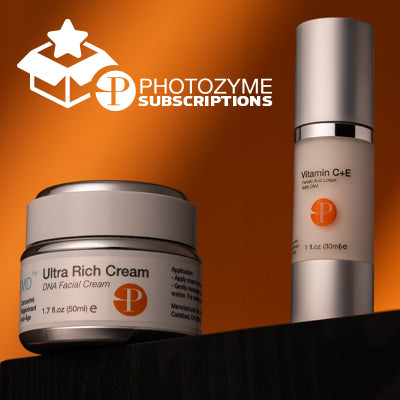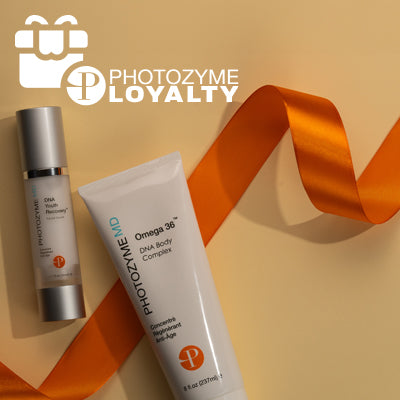
Key Takeaways:
- Broad-Spectrum Protection: Ensuring broad-spectrum protection against UVA and UVB rays is crucial for maintaining youthful and healthy skin while reducing long-term damage.
- Key Features To Look For: Choosing the right features in a daily facial sunscreen, such as water resistance, hypoallergenic and fragrance-free formulations, and moisturizing benefits, can enhance skin health and offer comprehensive protection.
- Reapplication & Ingredients Matter: For optimal skincare and sun defense, it is vital to reapply sunscreen throughout the day and select products with beneficial antioxidants while avoiding harmful chemicals.
Many choices, one solution.
Your face is constantly exposed to the sun, so choosing the right sunscreen is crucial for preventing sunburn and guarding against long-term damage such as premature aging, hyperpigmentation, and skin cancer. With countless options on the market, it can be daunting to sift through and find the best daily sunscreen for your face.
At Photozyme LLC, we pioneer groundbreaking skincare innovations to nourish, protect, and enhance the health of your skin. Our commitment to harnessing advanced and proprietary ingredients in our products places us at the forefront of offering comprehensive anti-aging and protective solutions.
In this article, we’ll examine the essential features of the best daily sunscreen for your face, including broad-spectrum protection, key ingredients to look for, and tips for ensuring optimal sun protection throughout the day.
Broad-Spectrum Protection: UVA And UVB Rays
When selecting the best daily sunscreen for your face, one must consider one that offers broad-spectrum protection. This means it shields your skin from UVA and UVB rays, which are harmful components of sunlight and can potentially cause skin damage.
The Risks Of UVA & UVB Rays
UVA rays, known for their longer wavelengths, penetrate deep into the skin, leading to premature aging and wrinkle formation. They can even suppress the immune system. On the other hand, UVB rays are responsible for sunburn and play a significant role in developing skin cancer.
Why Broad-Spectrum Sunscreen Matters
A broad-spectrum sunscreen thus provides a comprehensive shield against the photoaging effects of UVA and the burning and carcinogenic risks of UVB. Ensuring your sunscreen has this protective capability is crucial for maintaining youthful and healthy skin, reducing the accumulation of sun-induced damage over time.
The Benefits Of Photozyme's BEYONDbloc
Incorporating a product like Photozyme's BEYONDbloc into your daily skincare regimen can benefit individuals, particularly those concerned about anti-aging and skin health. BEYONDbloc, formulated with innovative and proprietary ingredients, provides broad-spectrum protection and is designed to address various skin concerns, aligning with Photozyme's commitment to protective and anti-aging solutions.
Sunscreen For Sensitive Skin: Hypoallergenic And Fragrance-Free Options
For individuals with sensitive skin, selecting the best daily sunscreen for the face requires careful consideration to avoid irritation or allergic reactions. Sensitive skin types benefit significantly from hypoallergenic and fragrance-free sunscreen options that provide the required protection without causing discomfort or harm.
The Role Of Hypoallergenic Sunscreens
Hypoallergenic sunscreens are formulated to minimize the risk of allergic reactions. They typically exclude common irritants such as parabens, sulfates, and synthetic fragrances, making them safer for those with reactive skin. Choosing a product labeled as hypoallergenic can significantly reduce the potential for redness, itchiness, or more severe allergic responses.
Why Fragrance-Free Matters
Equally important are fragrance-free options. Fragrance in skincare products, even those labeled "unscented," can lead to irritation or sensitization over time. Sunscreens devoid of fragrance are tailored to respect sensitive skin's fragile balance, offering protection without risking adverse effects.
Advanced Solutions For Sensitive Skin And Anti-Aging
Looking beyond just UV protection is beneficial for individuals concerned about aging and skin health. Innovative formulas, such as those offered by Photozyme, incorporate proprietary ingredients to address various skin concerns, including anti-aging. Using such products can shield your skin from the sun's harmful rays and provide additional benefits like minimizing the appearance of fine lines and wrinkles.
The Importance Of Patch Testing
In addition to selecting the right type of sunscreen, users with sensitive skin must perform a patch test before applying a new product all over the face. This precautionary step can help identify any adverse reactions in a controlled manner, ensuring the sunscreen chosen is compatible with their skin type.
Tinted Sunscreens: A Touch Of Color
Tinted options have emerged as the best daily sunscreen for the face due to their multifaceted benefits. Tinted sunscreens provide essential protection against UVA and UVB rays and offer a touch of color, enhancing your natural skin tone. This dual functionality makes them a favorite amongst skincare enthusiasts seeking to streamline their beauty routines without compromising sun protection.
Why Choose Tinted Sunscreens?
- Blendability & Coverage: Tinted sunscreens' slight pigment helps lighten the skin's complexion, reducing the appearance of blemishes, redness, and other minor imperfections. This can be especially appealing for those looking to achieve a more natural look without the heaviness of foundation or concealer.
- Added Skin Benefits: Many tinted sunscreens are formulated with additional skincare ingredients, echoing the innovative approach of companies like Photozyme. These may include antioxidants such as vitamins C and E, hyaluronic acid for hydration, and niacinamide for skin brightening. These ingredients protect the skin and nourish it.
- Protection With A Natural Finish: Tinted sunscreens can meet the needs of individuals who prefer a matte or dewy finish without leaving a white cast, a common drawback of traditional sunscreens. The tint helps ensure that the sunscreen blends seamlessly into the skin, providing a flawless finish that enhances the skin’s natural beauty.
Reapplication Throughout The Day: How And When
One of the most critical aspects of ensuring optimal protection from harmful UV rays is the reapplication of sunscreen throughout the day. While it’s easy to remember to apply sunscreen as part of your morning routine, maintaining that level of defense against the sun requires attention and diligence as the day progresses.
When To Reapply Sunscreen
The general rule of thumb is to reapply sunscreen every two hours when directly exposed to sunlight. However, this can vary based on your activity level and environment. For instance, if you're swimming or sweating, it's crucial to apply sunscreen more frequently, ideally every 40 to 80 minutes, depending on the water resistance of your product.
For those who spend most of their day indoors, reapplication should focus on times when you are most likely to be exposed to sunlight, such as going out for lunch or attending meetings near windows with direct sunlight. Even indirect exposure through windows, which can filter out UVB but not UVA rays, requires sunscreen for continuous protection.
How To Reapply Without Compromising Your Makeup
For many, the challenge of reapplying sunscreen over makeup can be a deterrent. Fortunately, innovative products and methods are designed to protect the skin without ruining your makeup. Products such as our tinted BEYONDbloc can be applied over makeup, offering a practical solution for midday protection. Additionally, setting sprays with SPF are available, which can be spritzed over the face to refresh your UV protection without disturbing your makeup.
The Role Of Innovative Skincare In Sun Protection
At Photozyme, we understand the importance of daily sun protection in preventing premature aging and safeguarding the skin's health. Our BEYONDbloc is designed to offer broad-spectrum protection against harmful UV rays while being suitable for reapplication over makeup, ensuring your skin remains protected throughout the day. These innovative solutions are part of our commitment to providing skincare products that support your skin’s health and beauty, embodying our motto of offering unique products like the DNA Youth Recovery Facial Serum for comprehensive anti-aging solutions.
Comparing Sunscreen Ingredients: What To Look For And Avoid
Understanding the ingredients is crucial when searching for the best daily sunscreen for the face. Sunscreen acts as a shield against the damaging effects of UV rays, and its ingredients play a significant role in its efficacy and safety.
Here’s a concise guide on what to look for and avoid when comparing sunscreen ingredients:
What To Look For
- Broad-Spectrum Protection: Always opt for sunscreens offering broad-spectrum protection. This means they protect against UVA rays, which accelerate aging, and UVB rays, which cause sunburn. Ingredients like zinc oxide and titanium dioxide are effective for broad-spectrum coverage.
- Antioxidants: Ingredients with antioxidant properties, such as vitamin E, C, and ferulic acid, can enhance protection. These antioxidants help neutralize free radicals, reducing the impact of UV radiation on the skin. Photozyme’s innovative approach to skincare includes incorporating potent antioxidants that complement sunscreen protection, offering dual benefits of UV defense and anti-aging properties.
- Water Resistance: Water-resistant formulas are necessary for active people or those who tend to sweat. Though no sunscreen is entirely waterproof, water-resistant options are formulated to remain effective longer when swimming or sweating.
What To Avoid
- Oxybenzone: Oxybenzone is a chemical sunscreen agent known for its potential hormonal disruptions and damaging effects on coral reefs. Opting for sunscreens without this ingredient is better for personal health and the environment.
- Parabens: Parabens are commonly used preservatives in cosmetics and skincare products, including sunscreens. However, they are linked to hormonal imbalances and potential adverse health effects. Paraben-free products are recommended for those with sensitive skin or health concerns.
- Fragrance: Fragrances in skin care products can cause irritation and allergic reactions, especially in sensitive skin types. Selecting fragrance-free sunscreens minimizes the risk of unwanted skin reactions.
Final Thoughts
A high-quality sunscreen should offer broad-spectrum protection, be suitable for daily use, and include ingredients that address protection, skin health, and anti-aging concerns. It’s essential to select a product that feels comfortable on the skin, provides adequate SPF coverage, and complements your skincare routine.
At Photozyme LLC, our commitment to innovating skincare solutions allows us to offer products that meet these criteria. Understanding the significance of daily sun protection, we've formulated products that protect against harmful UV rays and address various skin concerns such as aging, hydration, and overall skin health. Our unique approach to skincare, utilizing proprietary and innovative ingredients, empowers our customers to follow a comprehensive skin protection and care regimen.
Read also:
- The Consequences Of Skipping Sunscreen Protection
- Why Sunscreen Is Still Important During The Winter Months
- What Is SPF? Understanding Sun Protection
Frequently Asked Questions About Best Daily Sunscreen For Face
How does SPF rating affect sunscreen efficacy?
SPF, or Sun Protection Factor, measures how well a sunscreen can protect the skin from UVB rays, the radiation that causes sunburn, damages skin, and contributes to skin cancer. Higher SPF ratings offer more excellent protection. For daily use, dermatologists recommend using a sunscreen with at least an SPF 30, which blocks 97% of UVB rays. Higher SPF levels block slightly more UVB rays, but no sunscreen can block 100%.
Can I use body sunscreen on my face?
While using the same sunscreen on your face as you do on your body may be tempting, it's not always a good idea. Facial skin is sensitive and prone to breakouts, irritations, and allergies. Therefore, it's beneficial to use sunscreens specifically formulated for the face, which are typically non-comedogenic (won’t block pores) and may have added ingredients beneficial for facial skin care.
What ingredients should I look for in a daily facial sunscreen?
For daily facial sunscreen, look for products containing physical blockers like zinc oxide and titanium dioxide, which are less likely to irritate sensitive facial skin. Antioxidant-rich ingredients such as vitamins C and E can also protect against free radical damage. Hyaluronic acid and glycerin can offer hydrating benefits for those with dry skin.
How much sunscreen should I apply to my face?
Dermatologists recommend applying approximately half a teaspoon of sunscreen to your face for adequate coverage. It’s essential to apply it evenly across all areas of the face exposed to the sun, including the forehead, cheeks, nose, and chin. Don’t forget the ears and neck if they’re exposed.
Do I need to wear sunscreen if I have dark skin?
Yes, everyone, regardless of skin color, needs sunscreen protection. While darker skin tones have more melanin, which offers some protection against UV radiation, it’s not enough to prevent skin damage. Sunscreen can help protect against hyperpigmentation, skin cancer, and premature aging for all skin types.
How often should I reapply facial sunscreen?
Sunscreen should be reapplied outdoors every two hours, even on cloudy days. It should also be reapplied immediately after sweating heavily or swimming, even if the product is labeled water-resistant.
Is sunscreen necessary on cloudy days?
Yes, it’s a common misconception that sunscreen is only needed on sunny days. Up to 80% of UV rays can penetrate through clouds, meaning your skin is still at risk of UV damage, even on overcast days. Daily sunscreen use, regardless of the weather, is crucial for protecting the skin from premature aging, sunburn, and the risk of skin cancer.




